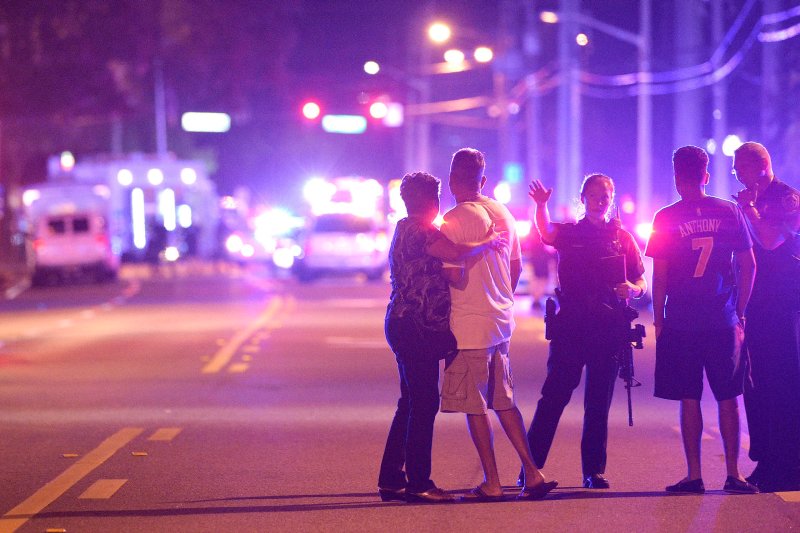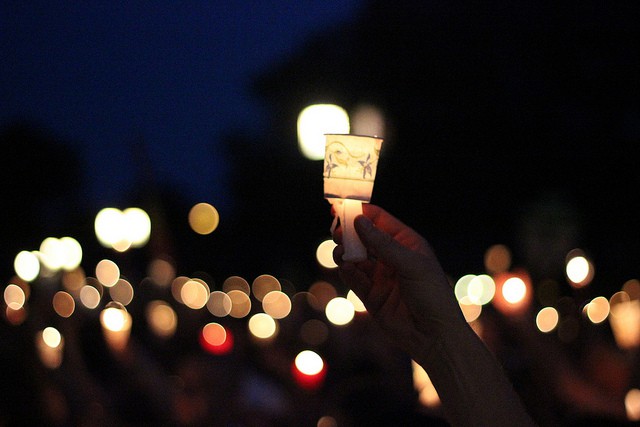
When my dad passed away from cancer during my sophomore year of college, none of my friends had gone through this type of loss. Over the past ten years though, I’ve walked through similar situations with others.
For many of us in our 20s or early 30s, either we or someone we know is experiencing the loss of a loved one for the first time.
Responding is confusing, and each situation is unique. While there isn’t a solution to the pain or a magical answer, here are a few responses I found helpful, whether you’re reaching out to a friend or experiencing loss yourself.
1. Acknowledge
Loss leaves us without. And it can be devastating to the person left. The support and love of friends, family, even co-workers or our church, reminds us that people recognize our suffering, and that the person who died mattered. It also reminds the person who lost someone that they matter—that they’re not alone.
Let that person know you acknowledge their loss or pain. It can be as simple as a few words like saying you’re sorry, a short email—even a phone call or commenting on their Facebook post, depending on the relationship. They may not be able to respond immediately, or maybe at all, but the important part is that they receive it.
A few days after my dad passed away, one of my high school classmates who I hadn’t seen since our freshman year took the time to write me a note and mail it. It was short and sweet. At the time, I was so overwhelmed with arrangements, people in and out of our home and the death of my dad that I didn’t respond. But I still have the card 10 years later.
2. Serve
People from our church came over while we were in the hospital and cleaned. My dad use to joke that cleaning our house was my mom’s love language—and with four kids, it’s no wonder. Someone must have paid attention. With all of the friends and family who were in and out after he died, it was a kind gesture that saved my mom the added stress.
Maybe you don’t have access to someone’s home, but you could cook a meal or drop off a gift card, offer to walk his or her dog or weed the flowerbed.
3. Remember and Uplift
Say something great you remember about the person who passed away. What was your favorite memory or how did they make you feel? Maybe write it down and share it or call someone to reminisce. Take the time to honor your friend with your words.
My sister started jotting down some of my dad’s funny one-liners on the same white board where she keeps her grocery list, and we’ll laugh about it together over the phone later. Neither death nor sickness takes away the core of the person or negates who they were in your life—it’s OK to talk about your loved one.
4. Ask What They Need
Often, even in grief, we try to do everything ourselves. Sometimes, people going through a hard time can have trouble accepting help or may not know how to ask.
If you know someone experiencing loss, go out of your way to ask what he or she needs. Or offer something specific—go over just to be a listening ear, to take your friend out for a few minutes of distraction. If you’re uncertain of the words to use when reaching out to a friend; pray for wisdom and sensitivity. One of the worst things would be to say nothing at all.
If you’re the one experiencing loss, allow yourself to say, “Yes,” when someone offers assistance, or even to ask directly for someone to bring a meal or check your mail. Friends may be relieved to know what they can do.
5. Be Present
When my dad passed away, friends came over to my house after the funeral. We all piled on the couch and I remember really laughing, almost to the point that it felt inappropriate, for the first time in months.
Yes, my heart was still hurting and still hurt the next day. There were some hugs and tears that night as well, but my friends’ presence was healing. They had come to sit without judgment or expectation.
6. Give Grace
There are things we’ll feel guilty about for not doing or not doing well enough. They may haunt us for years. I’ve had friends tell me they feel guilty because they didn’t spend enough time with the person they lost, or didn’t suffer like their loved one. There is grace though, both for the moments when we fall short and for the feelings of guilt when we unjustly judge ourselves.
Maybe you felt like you put your foot in your mouth when you were trying to express your condolences. It’s OK. Perhaps you don’t think the person is responding the way someone should. Give grace. None of us are perfect and we’ve never walked this exact path before.
7. Focus on the Person in Grief
When we’re reaching out to someone who has experienced loss, it isn’t about how eloquently we speak or how we’re perceived—it’s about the other person. Your friend just experienced or perhaps is experiencing the worst pain in his or her life.
It’s easy to compare losses or find ourselves talking about how hard it was for us when we lost someone we loved. Instead, take the time to focus on them and listen to what they have to say. Maybe they don’t want to say anything at all. Although the grief of someone we know can make us freeze up with the fear of saying something wrong, forgetting our own concern and bringing their well-being to the forefront will help us to offer the comfort they need.
This essay appeared in an earlier form in 2015.






















